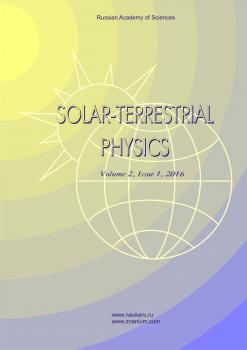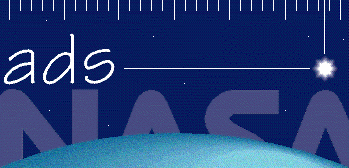from 01.01.2009 until now
Sankt-Peterburg, St. Petersburg, Russian Federation
Saint Petersburg, St. Petersburg, Russian Federation
St. Petersburg, Russian Federation
St. Petersburg University
Troitsk, Moscow, Russian Federation
St. Petersburg University
St. Petersburg, Russian Federation
In this study, we continue a series of works devoted to modeling and studying the sensitivity of global atmospheric dynamic processes to variations in solar emissions during the 11-year solar activity (SA) cycle. We focus on studying the response of meridional atmospheric circulation in the middle atmosphere to changes in thermosphere characteristics with changes in SA. For this purpose, numerical simulations of the general atmospheric circulation were carried out using the nonlinear numerical circulation model of the middle and upper atmosphere MUAM. The main mechanism of the influence of thermospheric disturbances on the underlying layers is assumed to be a change in the conditions of propagation and reflection of planetary waves (PWs) due to changes in SA. Changes in temperature, zonal and meridional wind are shown to localize along waveguides, demonstrating the significant role of PWs in transmitting thermospheric disturbances, caused by changes in SA, to the middle atmosphere. The magnitude of changes in meridional circulation can reach 10 % in the northern stratosphere between SA maxima and minima.
general atmospheric circulation, numerical simulation, solar activity, thermosphere, residual circulation
1. Andrews D.G., McIntyre M.E. Planetary waves in horizontal and vertical shear: The generalized Eliassen-Palm relation and the mean zonal acceleration. J. Atmos. Sci. 1976, vol. 33, iss. 11, pp. 2031–2048. DOI:https://doi.org/10.1175/1520-0469(1976)033< 2031:PWIHAV>2.0.CO;2.
2. Andrews D.G., Holton J.R., Leovy C.B. Middle Atmosphere Dynamics. Academic Press, 1987, 489 p.
3. Arnold N.F., Robinson T.R. Solar cycle changes to planetary wave propagation and their influence on the middle atmosphere circulation. Ann. Geophys. 1998, vol. 16, pp. 69−76.
4. Bal S., Schimanke S., Spangehl T., Cubasch U. Enhanced residual mean circulation during the evolution of split type sudden stratospheric warming in observations and model simulations. J. Earth Syst. Sci. 2018, vol. 127, 68. DOI:https://doi.org/10.1007/s12040-018-0972-x.
5. Brewer A.W. Evidence for a world circulation provided by measurements of helium and water vapour distribution in the stratosphere. Quart. J. Roy. Meteorol. Soc. 1949, vol. 75, pp. 351–363. DOI:https://doi.org/10.1002/qj.49707532603.
6. Butchart N. The Brewer-Dobson circulation. Rev. Geophys. 2014, vol. 52, pp. 157–184. DOI:https://doi.org/10.1002/2013RG000448.
7. Chang L.C., Yue L., Wang W., Wu Q., Meier, R.R. Quasi two day wave-related variability in the background dynamics and composition of the mesosphere/thermosphere and the ionosphere. J. Geophys. Res.: Space Phys. 2014, vol. 119, iss. 6, pp. 4786–4804. DOI:https://doi.org/10.1002/2014JA019936.
8. Dobson G.M.B. Origin and distribution of polyatomic molecules in the atmosphere. Proc. Roy. Soc. A. 1956, vol. 236, pp. 187–193. DOI:https://doi.org/10.1098/rspa.1956.0127.
9. Emmert J.T., Drob D.P., Picone J.M., Siskind D.E., Jones M.Jr., Mlynczak M.G., et al. NRLMSIS 2.0: A whole-atmosphere empirical model of temperature and neutral species densities. Earth and Space Science. 2020, vol. 7, e2020EA001321. DOI:https://doi.org/10.1029/2020EA001321.
10. Eyring V., Harris N.R.P., Rex M., Shepherd T.G., Fahey D.W., Amanatidis G.T., Austin J., et al. A strategy for process-oriented validation of coupled chemistry-climate models. Bull. Amer. Meteorol. Soc. 2005, vol. 86, iss. 8, pp. 1117–1133. DOI:https://doi.org/10.1175/BAMS-86-8-1117.
11. Fishman J., Crutzen P.J. The origin of ozone in the troposphere. Nature. 1978, vol. 274, pp. 855–857. DOI: 10.1038/ 274855a0.
12. Forbes J.M., Zhang X., Maute A. Planetary wave (PW) generation in the thermosphere driven by the PW-modulated tidal spectrum. J. Geophys. Res.: Space Phys. 2020, vol. 125, e2019JA027704. DOI:https://doi.org/10.1029/2019JA027704.
13. Forbes J.M., Zhang X., Maute A., Hagan M.E. Zonally symmetric oscillations of the thermosphere at planetary wave periods. J. Geophys. Res.: Space Phys. 2018, vol. 123, rr. 4110–4128. DOI:https://doi.org/10.1002/2018JA025258.
14. Gan Q., Du J., Fomichev V.I., Fomichev V.I., Ward W.E., Beagley S.R., Zhang S., Yue J. Temperature responses to the 11 year solar cycle in the mesosphere from the 31 year (1979–2010) extended Canadian Middle Atmosphere Model simulations and a comparison with the 14 year (2002–2015) TIMED/SABER observations. J. Geophys. Res.: Space Phys. 2017, vol. 122, iss. 4, pp. 4801–4818. DOI:https://doi.org/10.1002/2016 JA023564.
15. Gavrilov N.M., Koval A.V., Pogoreltsev A.I., Savenkova E.N. Simulating influences of QBO phases and orographic gravity wave forcing on planetary waves in the middle atmosphere. Earth Planets Space. 2015, vol. 67, 86. DOI:https://doi.org/10.1186/s40623-015-0259-2.
16. Geller M.A., Alpert J.C. Planetary wave coupling between the troposphere and the middle atmosphere as a possible sun-weather mechanism. J. Atmos. Sci. 1980, vol. 37, pp. 1197–1215. DOI:https://doi.org/10.1175/1520-0469(1980)037<1197:PWCBTT>2.0.CO;2.
17. Gerber E.P., Butler A., Calvo N., Charlton-Perez Ch.-P., Giorgetta M., Manzini M., Perlwitz J., et al. Assessing and understanding the impact of stratospheric dynamics and variability on the Earth system. Bull. Amer. Meteorol. Soc. 2012, vol. 93, iss. 6, pp. 845–859. DOI:https://doi.org/10.1175/BAMS-D-11-00145.1.
18. Gill A.E. Atmosphere-Ocean Dynamics. Academic Press, 1982. 662 p.
19. Hathaway D.H. The solar cycle. Living Rev. Solar Phys. 2010, vol. 7, 1. DOI:https://doi.org/10.12942/lrsp-2010-1.
20. Haynes P.H., McIntyre M.E., Shepherd T.G., Marks C.J., Shine K.P. On the “downward control” of extratropical diabatic circulations by eddy-induced mean zonal forces. J. Atmos. Sci. 1991, vol. 48, iss. 4, pp. 651−678. DOI:https://doi.org/10.1175/1520-0469(1991)048<0651:OTCOED>2.0.CO;2.
21. Holton J.R. An Introduction to Dynamic Meteorology. Fourth edition. Elsevier Academic Journal, 2004, 535 p.
22. Holton J.R., Haynes P.H., McIntyre M.E., Douglas A.R., Rood R.B., Pfister L. Stratosphere-troposphere exchange. Rev. Geophys. 1995, vol. 33, pp. 403–439. DOI:https://doi.org/10.1029/95RG02097.
23. Jucker M. Scaling of Eliassen-Palm flux vectors. Atmos. Sci. Lett. 2021, vol. 22, iss. 4, e1020. DOI:https://doi.org/10.1002/asl.1020.
24. Karlsson B., Kuilman M. On how the middle atmospheric residual circulation responds to the solar cycle close to the solstices. J. Clim. 2018, vol. 31, iss. 1, pp. 401–421. DOI:https://doi.org/10.1175/JCLI-D-17-0202.1.
25. Klausner V., Fagundes P.R., Sahai Y., Wrasse C.M., Pillat V.G., Becker-Guedes F. Observations of GW/TID oscillations in the F2 layer at low latitude during high and low solar activity, geomagnetic quiet and disturbed periods. J. Geophys. Res. 2009, vol. 114, A02313. DOI:https://doi.org/10.1029/2008JA013448.
26. Kobayashi S., Ota Y., Harada H. The JRA-55 Reanalysis: General specifications and basic characteristics. J. Meteorol. Soc. Japan. 2015, vol. 93, pp. 5−48. DOI:https://doi.org/10.2151/jmsj.2015-00.
27. Kodera K., Kuroda Yu. Dynamical response to the solar cycle. J. Geophys. Res. 2002, vol. 107, no. D24, 4749. DOI:https://doi.org/10.1029/2002JD002224.
28. Kodera K., Mukougawa H., Itoh S. Tropospheric impact of reflected planetary waves from the stratosphere. Geophys. Res. Lett. 2008, vol. 35, L16806. DOI:https://doi.org/10.1029/2008GL034575.
29. Koval A.V. Statistically significant estimates of influence of solar activity on planetary waves in the middle atmosphere of the Northern Hemisphere as derived from MUAM model data. Solar-Terr. Phys. 2019, vol. 5, iss. 4, pp. 53–59. DOI:https://doi.org/10.12737/stp-54201907.
30. Koval A.V., Gavrilov N.M., Pogoreltsev A.I., Shevchuk N.O. Influence of solar activity on penetration of traveling planetary-scale waves from the troposphere into the thermosphere. J. Geophys. Res.: Space Phys. 2018, vol. 123, iss. 8, pp. 6888–6903. DOI:https://doi.org/10.1029/2018JA025680.
31. Koval A.V., Gavrilov N.M., Pogoreltsev A.I., Shevchuk N.O. Reactions of the middle atmosphere circulation and stationary planetary waves on the solar activity effects in the thermosphere. J. Geophys. Res.: Space Phys. 2019, vol. 124, iss. 8, pp. 10645–10658. DOI:https://doi.org/10.1029/2019JA027392.
32. Koval A.V., Gavrilov N.M., Didenko K.A., Ermakova T.S., Savenkova E.N. Sensitivity of the 4–10-day planetary wave structures in the middle atmosphere to the solar activity effects in the thermosphere. Atmosphere. 2022, vol. 13, iss. 8, 1325. DOI:https://doi.org/10.3390/atmos13081325.
33. Koval A.V., Toptunova O.N., Motsakov M.A., Didenko K.A., Ermakova T.S., Gavrilov N.M., Rozanov E.V. Numerical modelling of relative contribution of planetary waves to the atmospheric circulation. Atmos. Chem. and Phys. 2023, vol. 23, iss. 7, pp. 4105–4114. DOI:https://doi.org/10.5194/acp-23-4105-2023.
34. Krivolutsky A.A., Cherepanova L.A., Dement’eva A.V., Repnev A.I., Klyuchnikova A.V. Global circulation of the Earth’s atmosphere at altitudes from 0 to 135 km simulated with the ARM model. Consideration of the solar activity contribution. Geomagnetism and Aeronomy. 2015, vol. 55, no. 6, pp. 780–800. DOI:https://doi.org/10.1134/S0016793215060067.
35. Labitzke K., Kunze M., Brönnimann S. Sunspots, the QBO, and the stratosphere in the North Polar Region 20 years later. Meteorologische Zeitschrift. 2006, vol. 15, iss. 3, pp. 355–363. DOI:https://doi.org/10.1127/0941-2948/2006/0136.
36. Liu H.L., Bardeen C.G., Foster B.T., Lauritzen P., Liu J., Lu G., Wang W. Development and validation of the Whole Atmosphere Community Climate Model with thermosphere and ionosphere extension (WACCM-X 2.0). J. Adv. Mod. Earth Syst. 2018, vol. 10, pp. 381–402. DOI:https://doi.org/10.1002/2017MS001232.
37. Lu H., Scaife A.A., Marshall G.J., Turner J., Gray L.J. Downward wave reflection as a mechanism for the stratosphere-troposphere response to the 11-year solar cycle. J. Clim. 2017, vol. 30, iss. 7, pp. 2395−2414. DOI:https://doi.org/10.1175/JCLI-D-16-0400.1.
38. Pawson S., Kodera K., Hamilton K., Shepher T.G., Beagle S.R., Boville B.A., Farrara J.D., et al. The GCM-Reality Intercomparison Project for SPARC (GRIPS): Scientific issues and initial results. Bull. Amer. Meteorol. Soc. 2000, vol. 81, iss. 4, pp. 781–796. DOI:https://doi.org/10.1175/1520-0477(2000) 081<0781:TGIPFS>2.3.CO;2.
39. Pogoreltsev A.I., Vlasov A.A., Fröhlich K., Jacobi Ch. Planetary waves in coupling the lower and upper atmosphere. J. Atmos. Solar-Terr. Phys. 2007, vol. 69, pp. 2083−2101. DOI:https://doi.org/10.1016/j.jastp.2007.05.014.
40. Richards P.G., Fennelly J.A., Torr D.G. EUVAC: a solar EUV flux model for aeronomic calculations. J. Geophys. Res. 1994, vol. 99, pp. 8981–8992. DOI:https://doi.org/10.1029/94JA00518.
41. Scaife A.A., Austin J., Butchart N., Pawson S., Keil M., Nash J., James I.N. Seasonal and in-terannual variability of the stratosphere diagnosed from UKMO TOVS analysis. Quart. J. Roy. Meteorol. Soc. 2000, vol. 126, pp. 2585–2604. DOI:https://doi.org/10.1002/qj.49712656812.
42. SPARC CCMVal. SPARC report on the evaluation of chemistry-climate models. SPARC Report No. 5, WCRP-132, WMO/TD-No. 40. Edited by V. Eyring, T.G. Shepherd, and D.W. Waugh. 2010, 426 p.
43. Tapping K.F. Recent solar radio astronomy at centimeter wavelength: the temporal variability of the 10.7-cm flux. J. Geophys. Res. 1987, vol. 92, iss. D1, pp. 829–838. DOI: 10.1029/ JD092iD01p00829.
44. Vadas S.L., Fritts D.C. Influence of solar variability on gravity wave structure and dissipation in the thermosphere from tropospheric convection. J. Geophys. Res. 2006, vol. 111, A10S12. DOI:https://doi.org/10.1029/2005JA011510.
45. Wang J.C., Chang L.C., Yue J., Wang W., Siskind D.E. The quasi 2 day wave response in TIME-GCM nudged with NOGAPS-ALPHA. J. Geophys. Res.: Space Phys. 2017, vol. 122, iss. 5, rr. 5709–5732. DOI:https://doi.org/10.1002/2016JA023745.
46. Yiğit E., Medvedev A.S. Internal gravity waves in the thermosphere during low and high solar activity: simulation study. J. Geophys. Res. 2010, vol. 115, A00G02. DOI: 10.1029/ 2009JA015106.


















